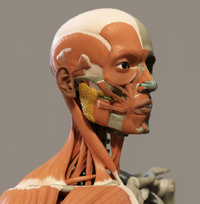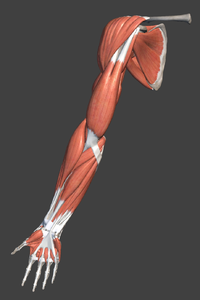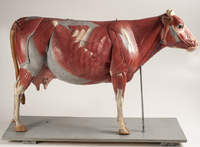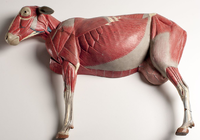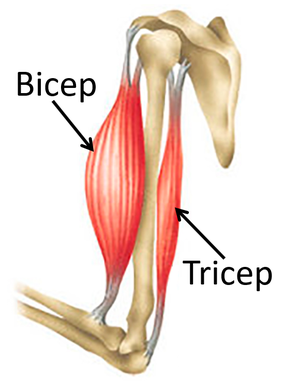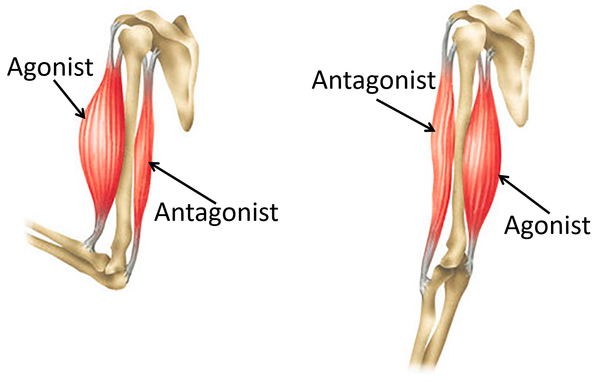Muscle
Contents
Key Stage 1
Meaning
A muscle is a part of the body that makes us move.
Key Stage 2
Meaning
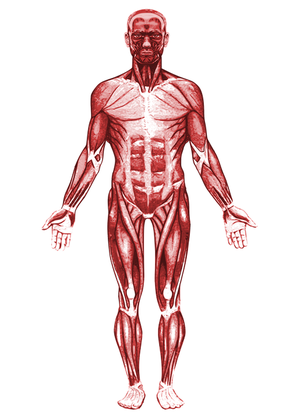
This picture shows the muscles covering the human skeleton.
A muscle is a part of the body that can get shorter or longer to allow us to move about.
About Muscles
- In a human the muscles are attached to bones in the skeleton.
- Muscles can relax which means get longer or that can contract which means they get shorter.
- When we exercise it makes our muscles bigger and stronger.
Examples
| The muscles in the human face. | The muscles in the arm. |
| The muscles covering a cow skeleton. | The muscles under the skin of a sheep. |
Key Stage 3
Meaning
Muscles are organs in the muscular system which allow us to move.
About Muscles
- Muscles are made of muscle tissue.
- The cells in the muscles have a special part called 'muscle fibres' which can make the cells shorter or longer.
- When a muscle gets shorter it has contracted and when a muscle gets longer it has relaxed.
- Most muscles come in antagonistic pairs. This means when one contracts the other must relax.
| When a muscle contracts it is called the 'agonist' and when it relaxes it is called the 'antagonist'. |
Key Stage 4
Meaning
Muscles are organs in the muscular system which allow us to move.
About Muscles
- Muscles are made of muscle tissue.
- The cells in the muscles have a special part called 'muscle fibres' which can make the cells shorter or longer.
- When a muscle gets shorter it has contracted and when a muscle gets longer it has relaxed.
- Most muscles come in antagonistic pairs. This means when one contracts the other must relax.
| When a muscle contracts it is called the 'agonist' and when it relaxes it is called the 'antagonist'. |
